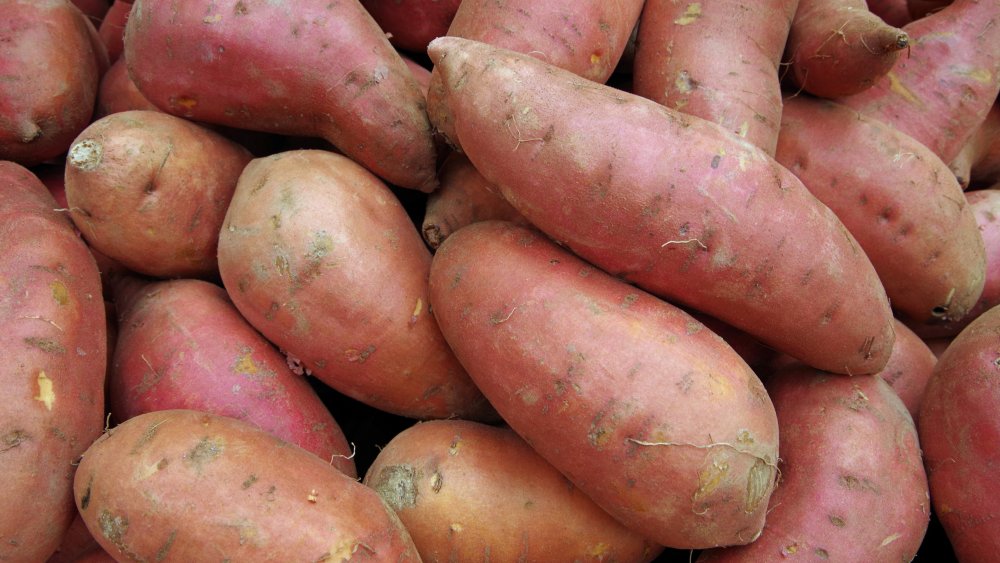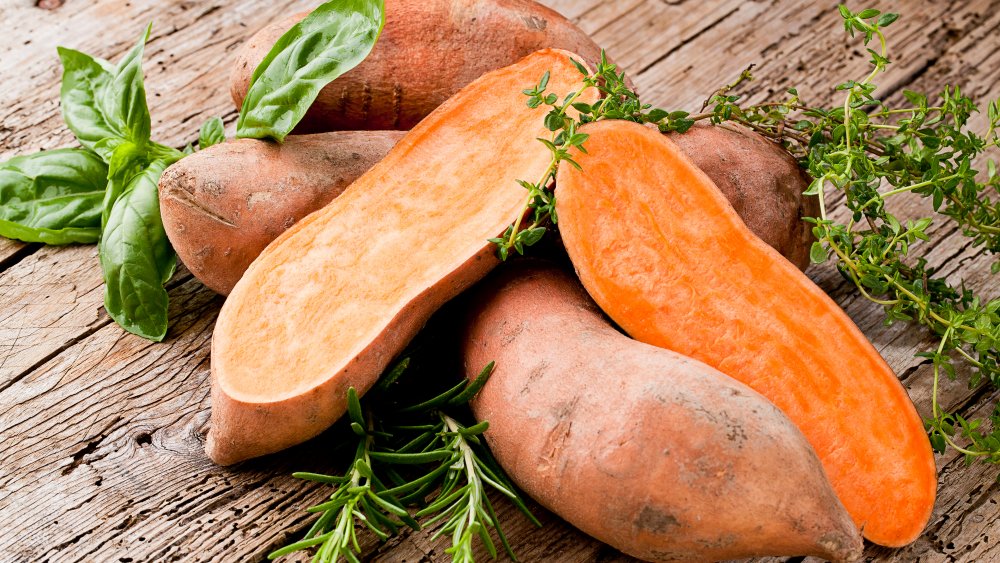The Real Difference Between Yams And Sweet Potatoes
Most of us have been around the Thanksgiving table and asked, "What's the difference between yams and sweet potatoes?" as we took a bite of a marshmallow-coated yam casserole (at least we think it's made of yams), and more likely than not a general shrug happened around the room, as no one seems to know. So what's the deal? Are they really different?
In short, nothing is different about the yams and the sweet potatoes you buy from most American grocery stores. Most of the starchy tubers labeled as yams at your local grocer are actually just orange sweet potatoes.
Real genuine yams, though, are more like yucca. They have a tree trunk-like skin and are not sweet. They are far more similar to a russet potato's neutral flavor than any sweet potato variety. Actual yams are generally prepared alongside meats in traditional Caribbean or West African cooking and are not easy to source in the U.S. (via Bon Appétit).
So why have we all been told we're eating yams if you can't really find that particular root vegetable in your everyday supermarket?
The mix-up between yams and sweet potatoes originated from the Trans-Atlantic slave trade
Buckle up, because here's the truth. During the Trans-Atlantic slave trade, West African Yams were front and center. Slave traders used the traditional root to sustain the captured people on their ships for their very long journey across the Atlantic. They have been reported to have taken 100,000 yams aboard their vessels. This may seem like a lot, but when you consider that they were feeding hundreds of enslaved people for months, that number is really quite minuscule (via Food & Wine).
The word yam is derived from the West African words "nyami," "nyam," or "enyame," all of which mean "to eat." This is because the root is such a staple in their diet and cuisine. The vegetable sinks deep in the culture there, and so when enslaved West Africans encountered orange sweet potatoes in America, they transferred the name over in order to preserve their spiritual practices around the foods. Christopher Columbus had carried sweet potatoes back from Central America, too, so they aren't necessarily native to the U.S., either.
So next time you go to pick up some yams, know that you will actually be bringing home orange sweet potatoes from Central America.

